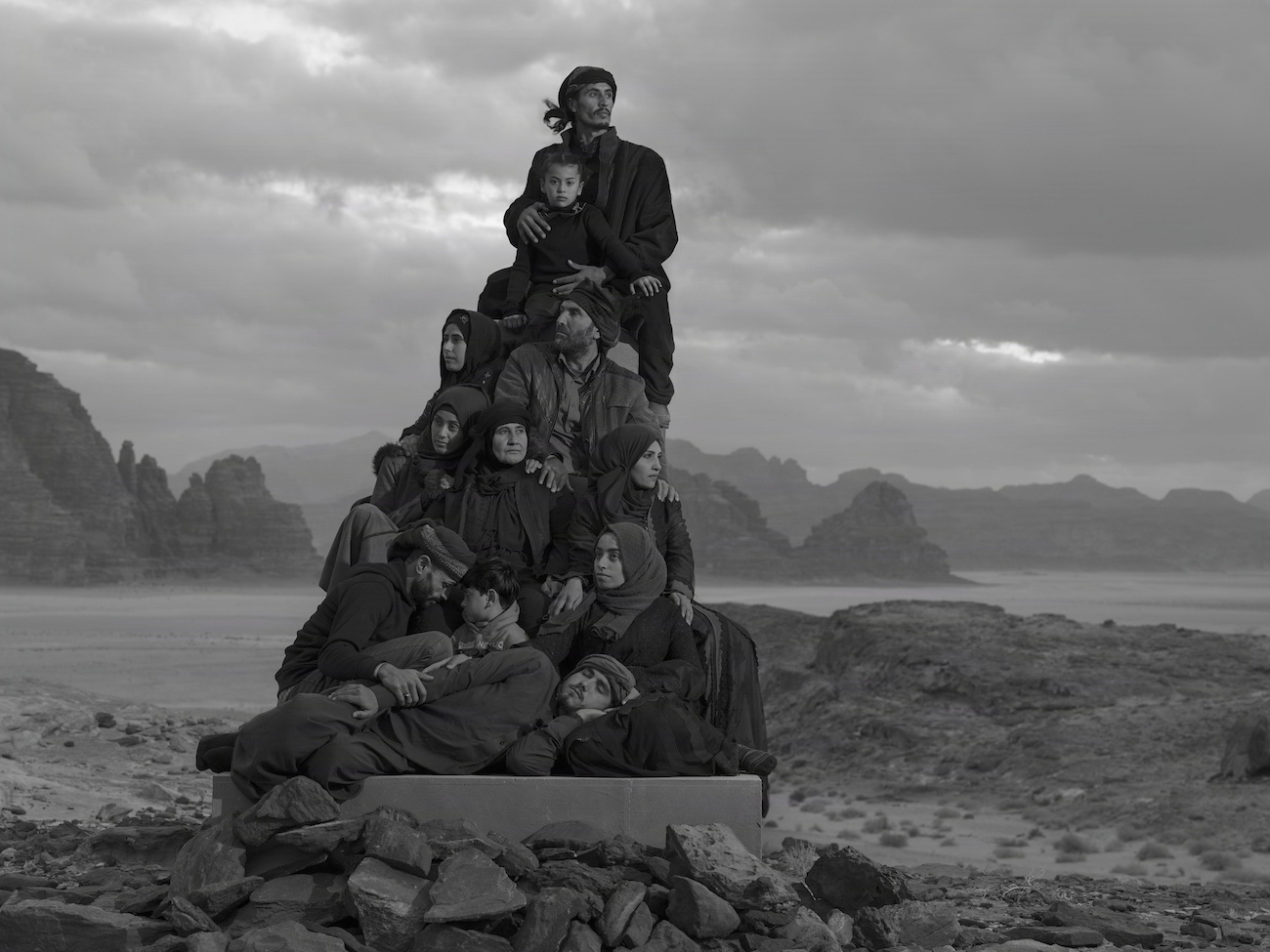
“Ahmed, Zaina, and Ftaim Families,” 2024
Photographer Nick Brandt is a master of contrast and balance. His photographs practically vibrate with both: jagged rocks and tattered furniture softened beneath Fiji’s shimmering water; a delicate mist swirls around people as they pose with elephants, cheetahs, and bears; and, most recently, Syrian families trek through Jordan’s unrelenting Wadi Rum Desert.
Since 2020, Brandt has cataloged the humans and animals most vulnerable to the ongoing climate crisis, journeying to a variety of global contexts such as Kenya, Zimbabwe, Bolivia, and Fiji. These photographs constitute various chapters in his The Day May Break series, and The Echo of Our Voices serves as the fourth addition, shot throughout 2024. Across countless compositions, this newest iteration considers displaced Syrian refugees, each of whom fled war in their native country between the years 2013 and 2015. For years, these families have lived in continuous displacement in Jordan, which is considered to be one of the world’s most water-scarce countries.
“These families are forced to move up to several times a year, moving their tents to where there is available agricultural work, to wherever there has been sufficient rainfall to enable crops to grow,” Brandt tells My Modern Met.
Still, even in the face of such precarity, Brandt’s photographs mine the resilience and humanity necessary to withstand displacement, especially as it relates to climate change. Each composition in The Echo of Our Voices envisions its subjects as permanent rather than fleeting entities, as sturdy as islands in a vast ocean. Entire families scale rugged cliff faces and pedestals, the arid landscape unfolding behind them endlessly. Despite the desert’s seeming desolation, there’s tenderness here: an embrace, hands pressed together, an arm gently slung around a shoulder. Touch and proximity reign, as they almost always do, and it’s this sense of contrast that elevates The Echo of Our Voices beyond mere social commentary.
“People looking at these photos are probably living lives of much greater comfort, and so I hope that they can recognize and have empathy for those less fortunate,” Brandt adds. After all, The Day May Break series focuses on those in countries that are the least responsible for climate breakdown.
In April, The Echo of Our Voices was exhibited in New York during AIPAD’s Photography Show at the Park Avenue Armory. During a press preview for the event, the My Modern Met team had the opportunity to view these photographs in person, where their sheer scale became evident.
“In my large prints, you are able to see the expressions and emotions on the Syrian families’ faces,” Brandt says. “The impact is completely lost on phones.”
My Modern Met had the chance to chat with Nick Brandt about The Echo of Our Voices and the process of creating the photographs included within. Read on for our exclusive interview with the photographer.
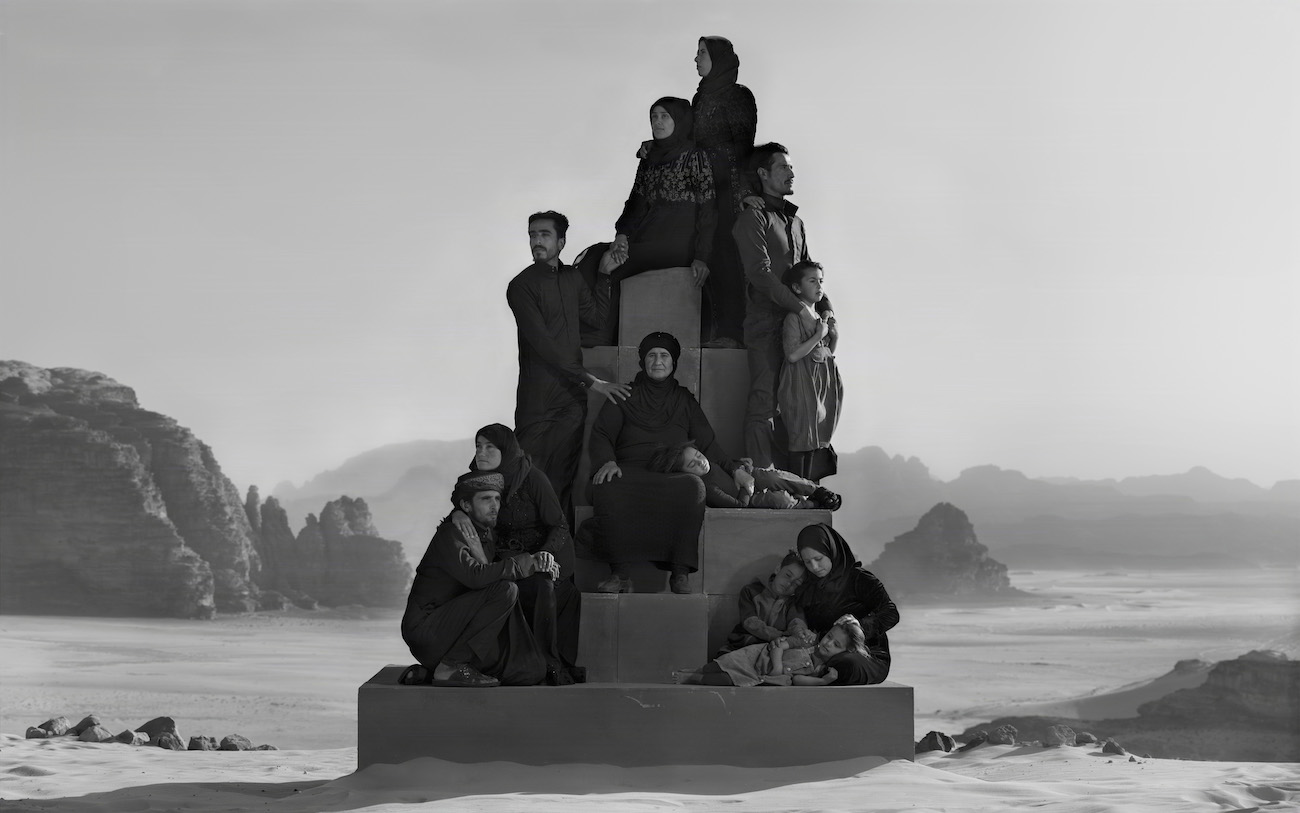
“Ftaim and Family,” 2024

“The Cave,” 2024
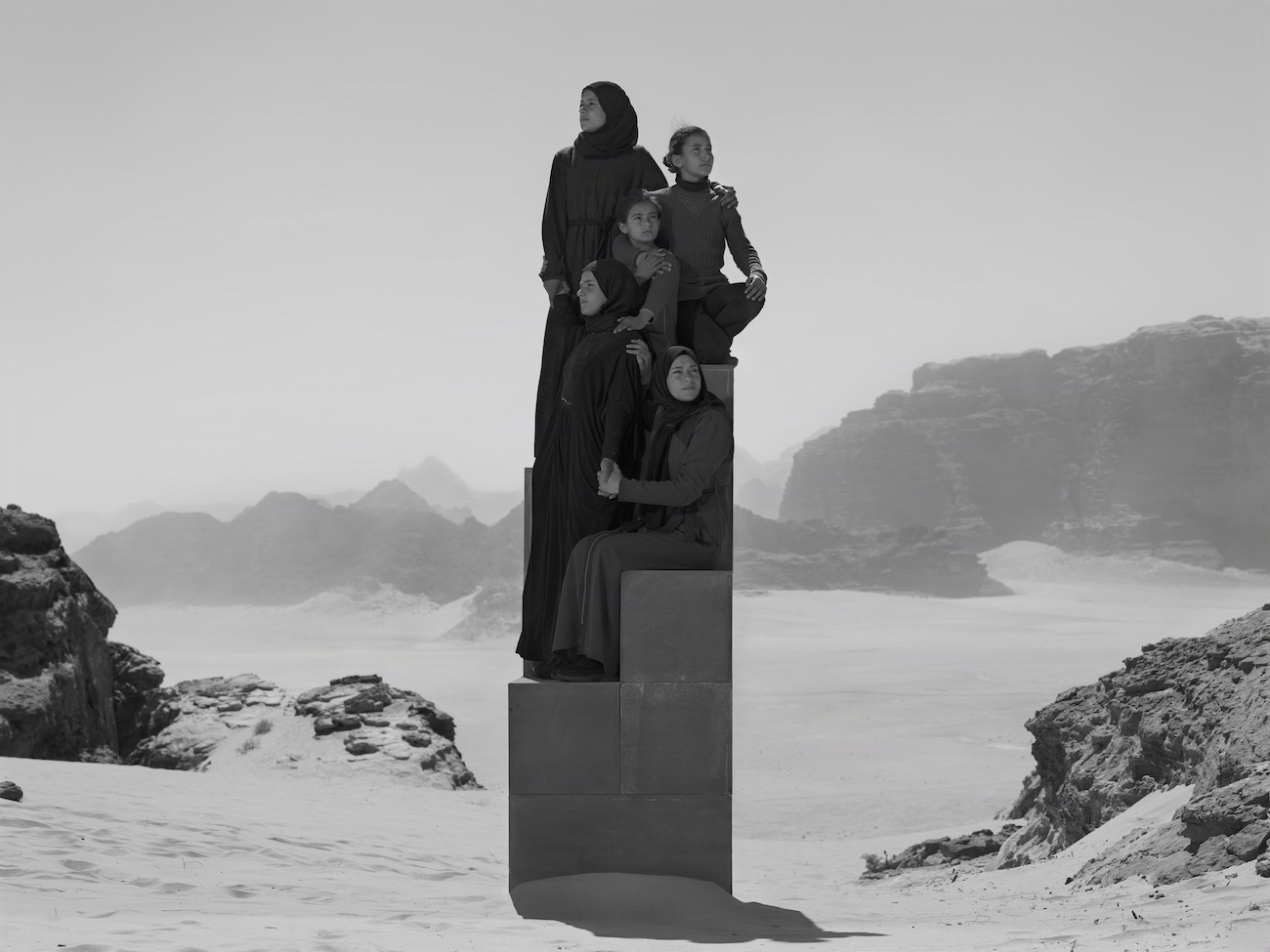
“Rakan Sisters,” 2024
What originally drew you to photography?
Simply the desire to express my feelings about the impact that humans have had on the planet, and the injustice of the most vulnerable being harmed the most.
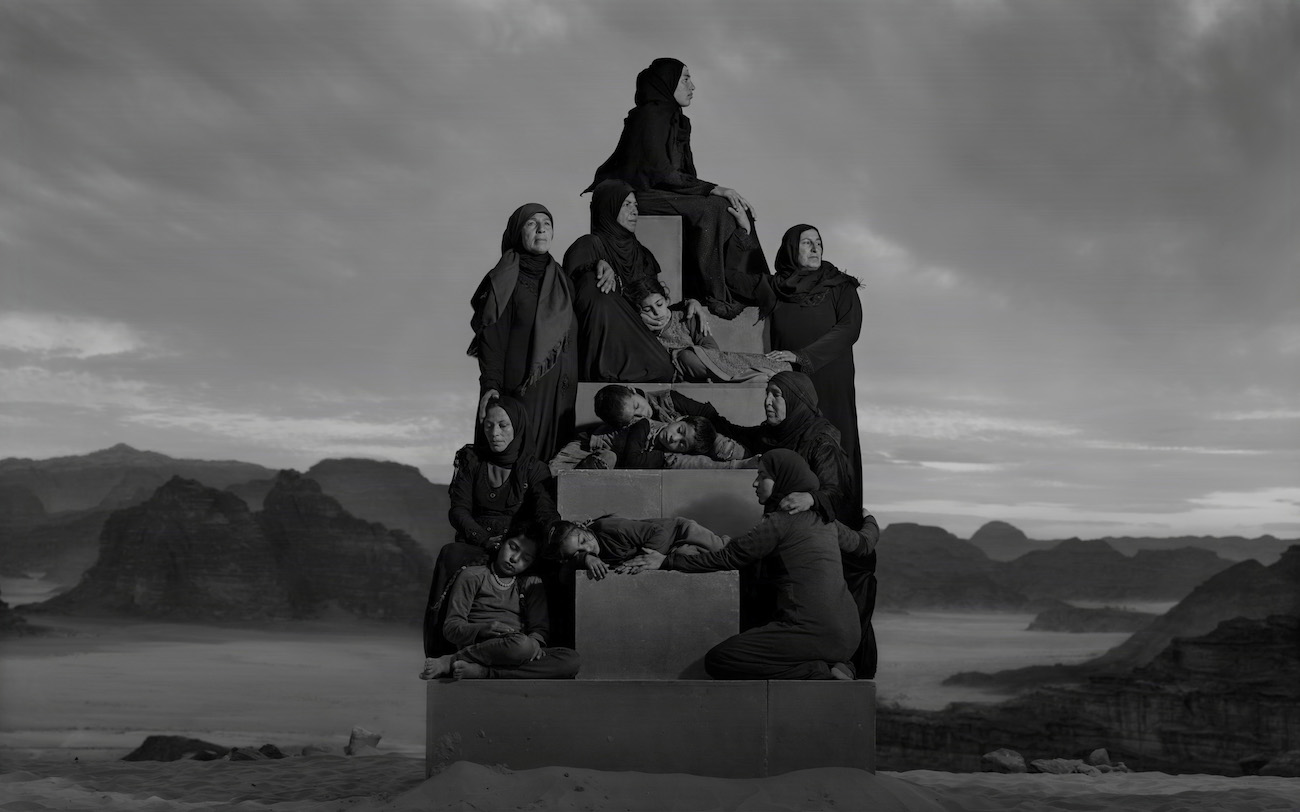
“Women with Sleeping Children,” 2024
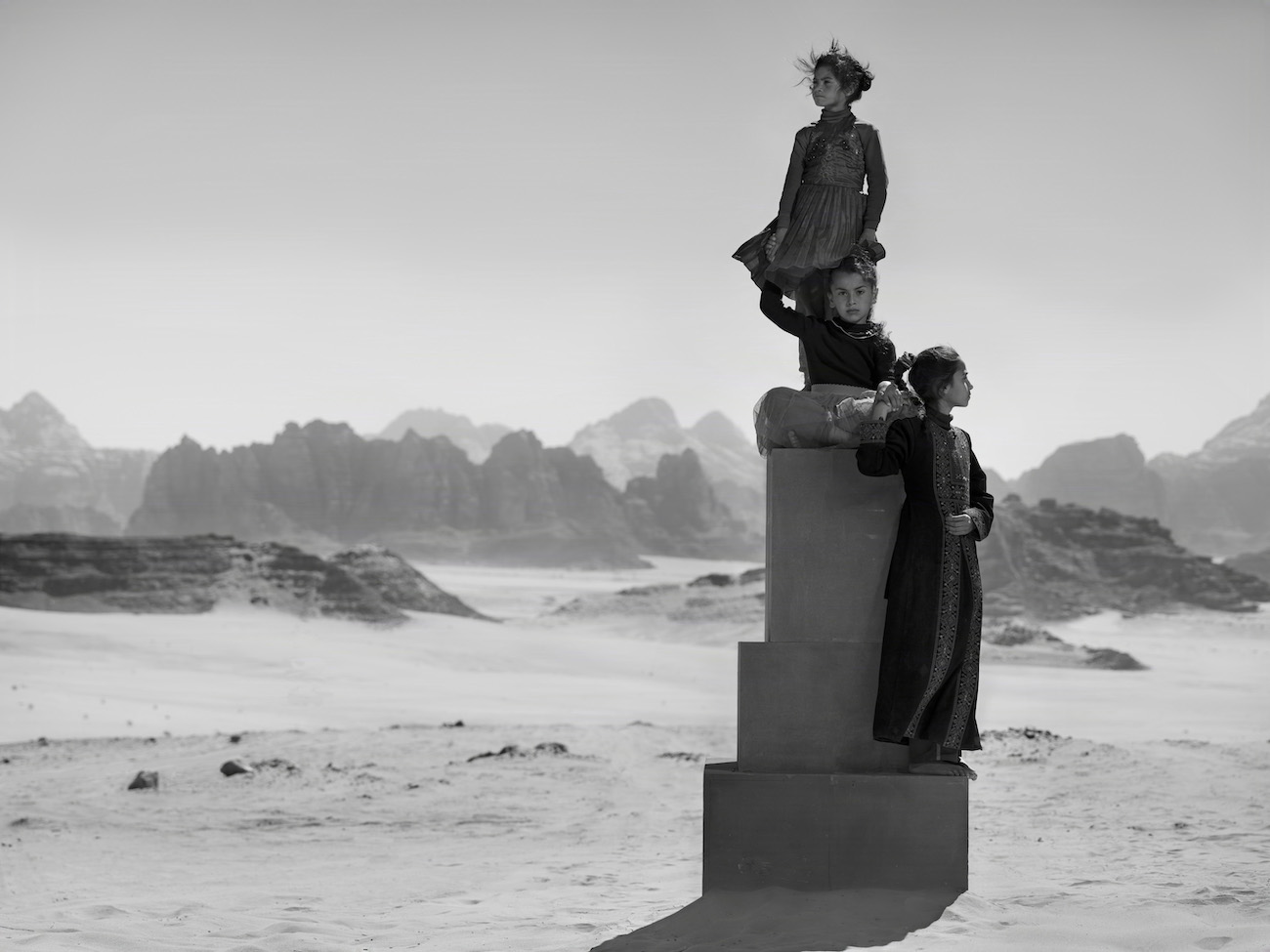
“Zaina, Laila, and Haroub,” 2024
What was the impetus behind your newest series The Echo of Our Voices?
The Echo of Our Voices is the fourth chapter of the global series, The Day May Break, featuring people and animals impacted by climate change and environmental degradation and destruction.
For this chapter, it was the first to focus purely on a part of the world where people are struggling more and more with the disappearance of water as a result of climate change. Jordan is regarded as the second most water-scarce country on the planet.
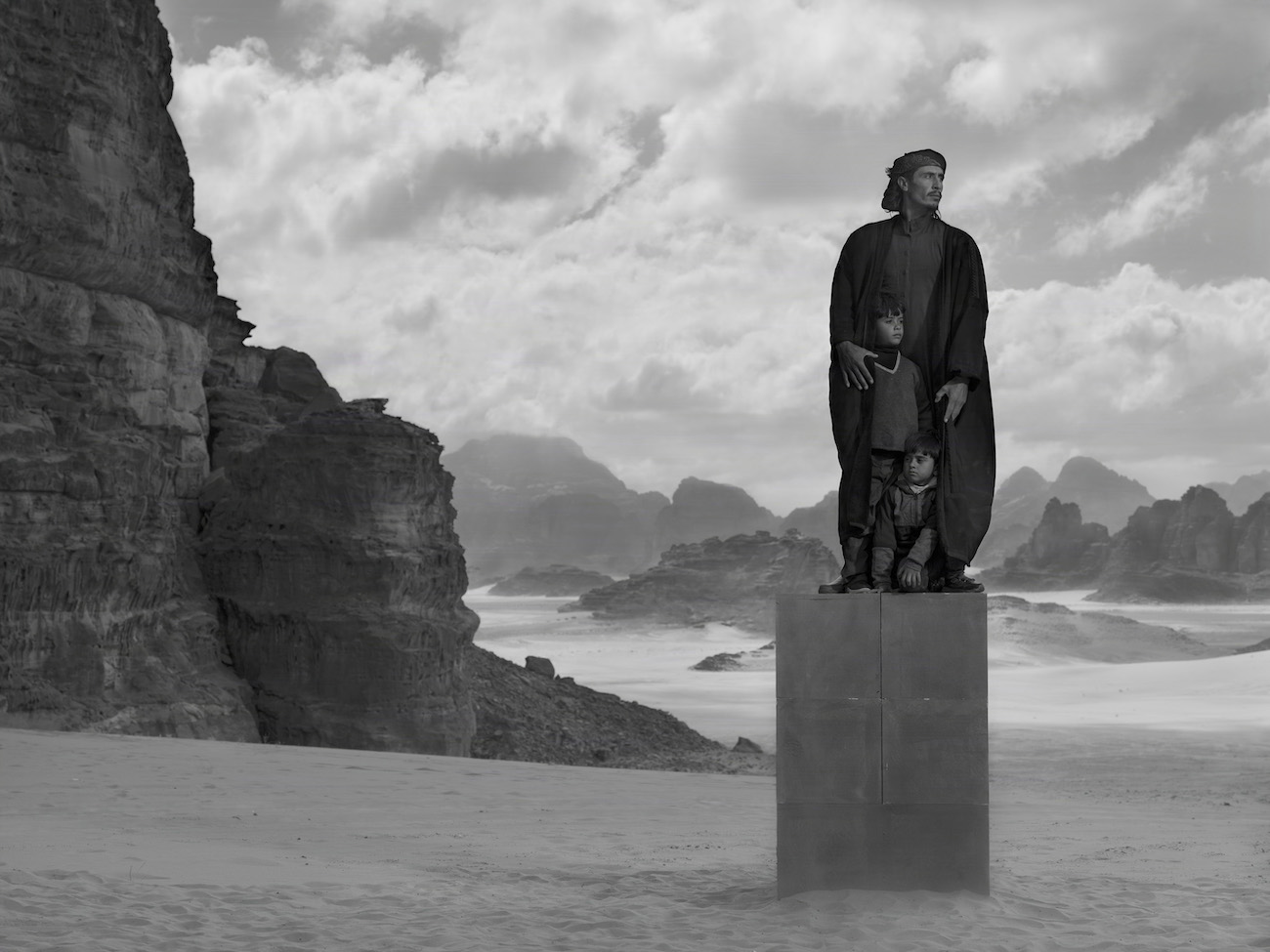
“Ahmed and Sons,” 2024

“Ahmed, Zaina, and Ftaim Families,” 2024
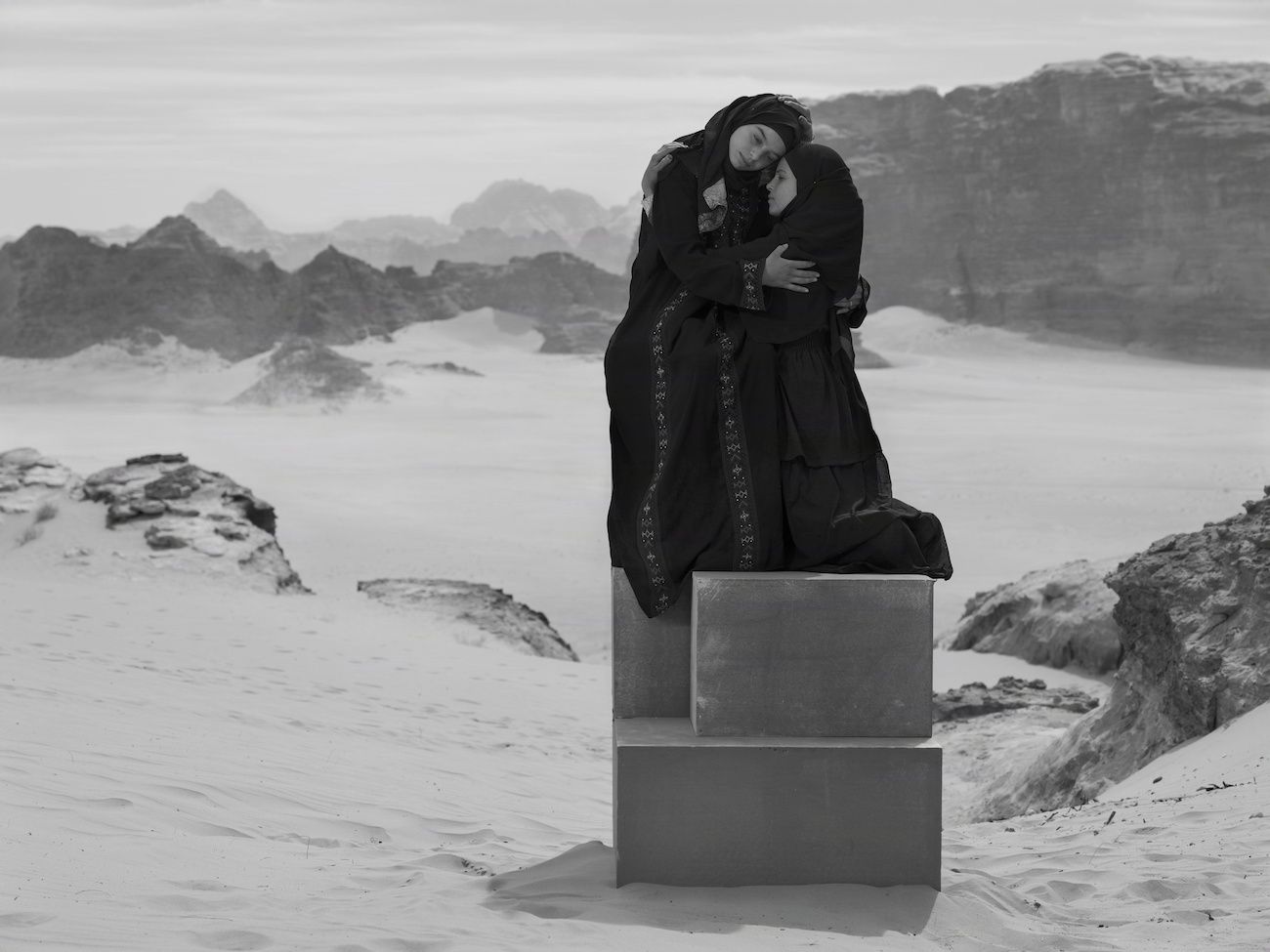
“Aisha and Mariam,” 2024
What was the process of shooting the images included in The Echo of Our Voices?
We invited 40 family members at a time down to the desert in southern Jordan for one week at a time. Why so many people at a time? Because I like the unexpected. Serendipity and accidents are far more interesting than anything I might pre-script. For me, it is like a kind of photographic jazz, each person a musical note, if you will. And you work with them to see, sometimes out of nowhere, if a visual melody forms that somehow indefinably moves you.
I could have made everything much more simple if we had just thrown a bunch of boxes on the back of a truck and driven from place to place around Jordan to the camps where the families were currently living. But then we would never have had this location—the desert in southern Jordan, a location that is a poetic symbol of an increasingly desiccated world, mountains rising up from the dunes that become a visual echo of the people. For me, there was no choice: we had to bring all the families to the desert and photograph them there.
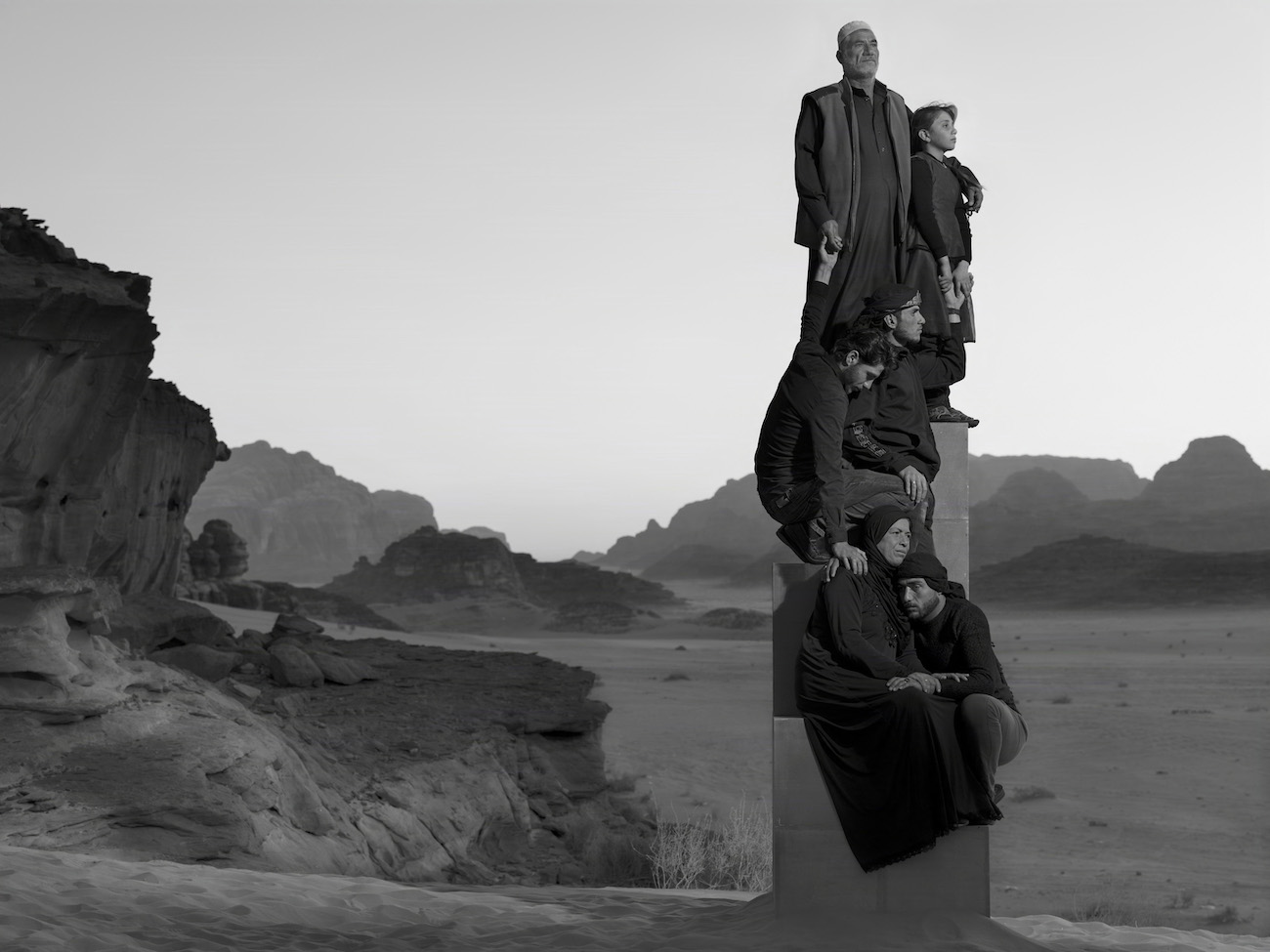
“Kamal Family,” 2024
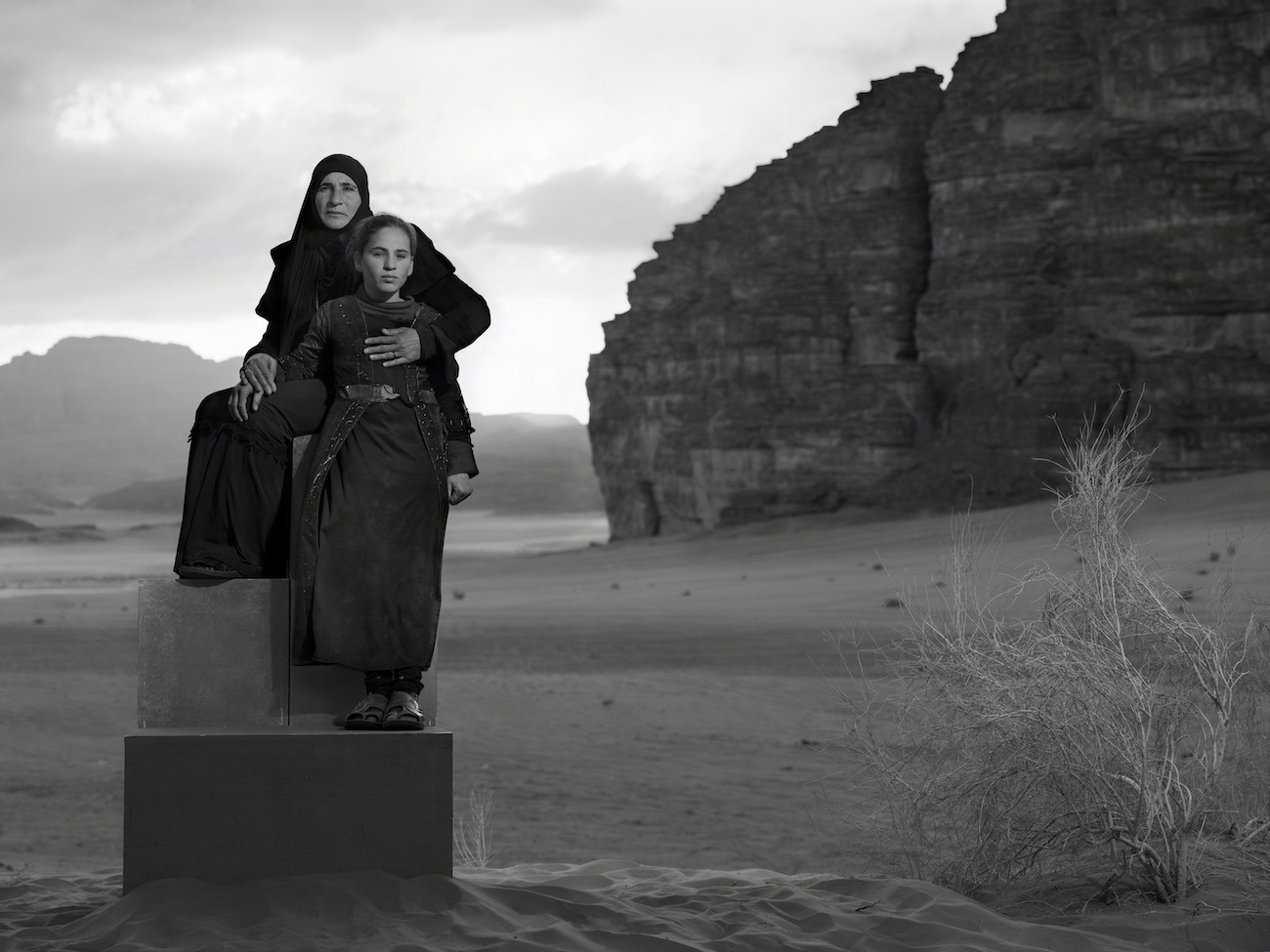
“Fasel and Inas,” 2024
How would you describe your relationship with the subjects depicted in these photographs? What stories do they hope to tell in your photographs?
When I arrived in Jordan, I spent the first two weeks traveling around meeting many of the families that Lubna—our casting researcher, coordinator, and translator—had met and interviewed.
There was something about the Syrian families that drew me to them the most. Having fled the war in Syria in the years 2013-15, they were now living lives of continuous displacement due to climate change, forced to move up to several times a year, moving their tents to where there is available agricultural work, to wherever there has been sufficient rainfall to enable crops to grow.
It’s a cycle with no end in sight while they live in Jordan. They themselves all see how dramatic the changes have been over the last decade, their lives so compromised by the dramatically diminished winter rains.
As they said, water is life. And life is getting harder.
When I first came up with the concept for this fourth chapter, I had no idea that the series would almost entirely feature Syrian refugee families, but with this extra dimension of perpetual displacement, featuring them made so much sense.
These photos would not be possible without them. Although the photos were of course very choreographed, they understood what we were doing because they spent so many days with us and would see the photographs at the end of each session.

“Laila and the Women,” 2024
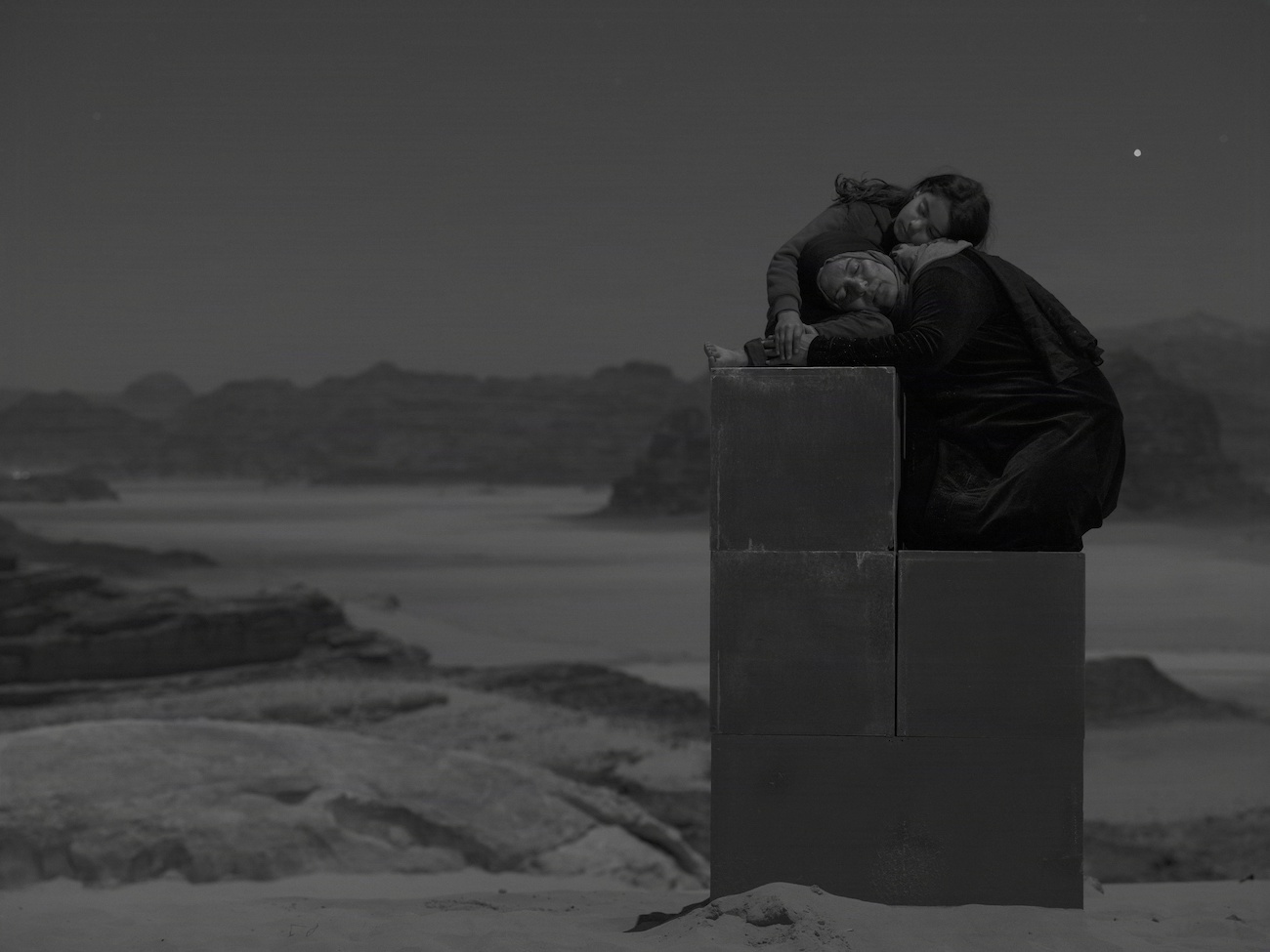
“Maisa and Boshra in Moonlight,” 2024
The Echo of Our Voices not only considers the consequences of climate change and displacement, but also of war. Why do these themes feel relevant to you, and how, if at all, is photography uniquely poised to address them?
For me, climate change is the most consequential threat in the history of humankind. Photography is not uniquely poised to address this and the consequences of displacement and war—far from it. I would say that film is the most powerful medium in which to express this. But photography is the medium in which I am most comfortable expressing my feelings about all this. Specifically, in my large prints, where you are able to see the expressions and emotions on the Syrian families’ faces. The impact is completely lost on damned phones.

“Mariam and Families,” 2024

“Rakan Sisters in Moonlight,” 2024
What do you hope people will take away from The Echo of Our Voices, especially now that it’s traveling to exhibitions around the world?
As with all the chapters of The Day May Break, the series features people who live in countries among those that are the least responsible for climate breakdown. Their global carbon emissions have been tiny compared to those of industrial nations. Yet, like so many other poorer countries in the world, they are disproportionately harmed by its effects. The grim irony is that many people in these countries are the most vulnerable to the calamitous consequences of the industrial world’s ways.
People looking at these photos are probably living lives of much greater comfort, and so I hope that they can recognize and have empathy for those less fortunate. And maybe it will make people pause and think how they can live their lives a little differently. To be good or better ancestors. To consider the environmental impact that our actions will have on future generations, on those billions of unborn yet to come.
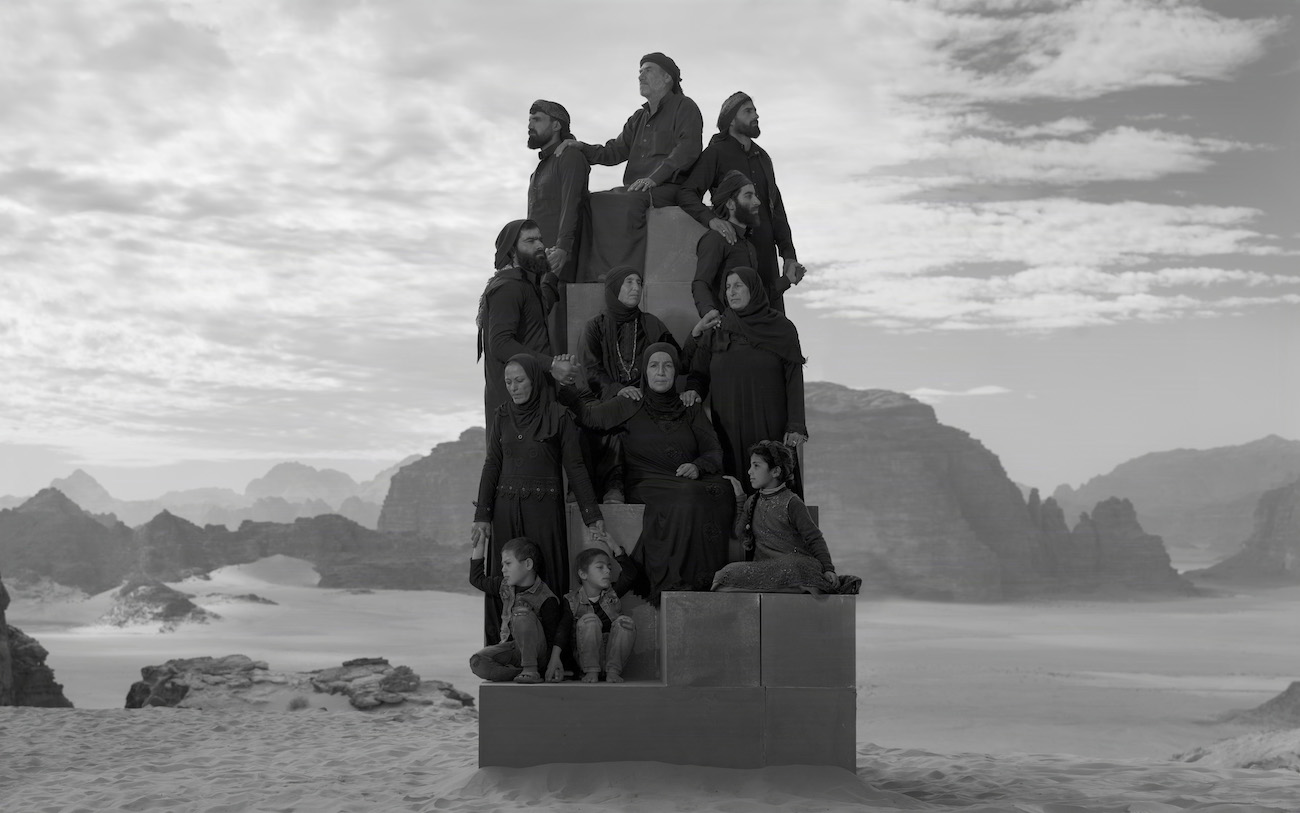
“Shaila and Families,” 2024

Nick Brandt’s “The Echo of Our Voices” at AIPAD’s 2025 Photograph Show, New York, NY (Photo: Eva Baron/My Modern Met)
Do you have any exciting projects coming up in the near future?
I’m taking a year off from creating for the first time in many years, focused on trying to escape the toxic, inhumane, cruel, and ugly world that Trump and his administration have created in the country that I have lived in almost all my adult life. I am moving to Europe for some sanity and calm. Once there, I can hopefully come up with a new concept and start creating again later next year.
